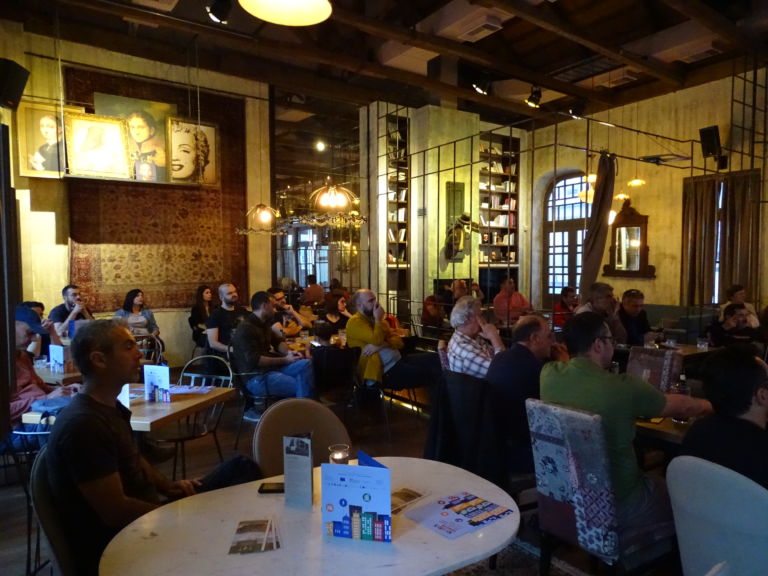Synopsis of Citizen Workshop concerning user needs and requirements
During a lively discussion and exchange of ideas with more than 40 citizens in Kalamata (16 April 2018), the following key conclusions and user needs were identified:
- The access to information was a recurring theme, as the citizens inquired on the possibility of a body of citizens directly acquiring environmental information or access to services, to support a certain case, in situations when authorities are not responsive.
- Awareness of existing, open services was also put on the table as a gap, which raised the need for more efficient communication of project outcomes and training campaigns.
- The mal-treatment of open information that could erroneously raise an alarm was proven an essential element, and concrete steps for scientific thoroughness were in all cases prioritized.
- With respect to local environmental pressures, pollution was brought first in the concern of the citizens, and the lack of any kind of official monitoring/information system (which can be the case for smaller cities) was put forward as a major gap. This can target basic urban pollutants but great interest was also shown for natural occurring pollution like Saharan Dust.
- Pollution impacts are widely recognized and not limited only to health aspects. The discussion concentrated also on impacts to cultural heritage, due to great local interest, and the need for tailored approaches for different type of impacts assessment clearly emerged (e.g. deployment of SO2 sensors to track potential acid rain effects on monuments).
- The existence of different nearby pollution sources (e.g. the power plant unit of Megalopolis, oil/olive processing mills, agricultural open fires at seasonal basis, landfills, the local airport), raised the need for apportionment methods being in effect, in order to target mitigation measures.
- Contradicting arguments put forth, with respect to the real impact of some activities (e.g. oil/olive processing mills), underlined the need of transparency and increased effort in public awareness and dissemination of toxicity relevant parameter information (e.g. monitoring, levels, official EU limits, assessments), as a tool for overcoming conflicts of interest.
- The risk of groundwater contamination from excessive use of pesticides was highlighted.
- With respect to natural disasters, and given that Kalamata has been severely struck by earthquakes in the past, the citizens inquired whether earthquake, tsunami or landslide risk assessment maps exist and urged for specific efforts to this direction.
- Concerning Citizen Observatories (COs) perception and requirements for successful implementation, the citizens believed engagement to be a given (only some argued that incentives should be offered), and a CO activity regarding AQ was promoted with great zest, in alignment with SMURBS plans for the role of Kalamata as a pilot city.
- Transparency of Local Authorities’ Council meetings was requested via increased participation and intervention capacity of citizens, as means of improved decision making.

